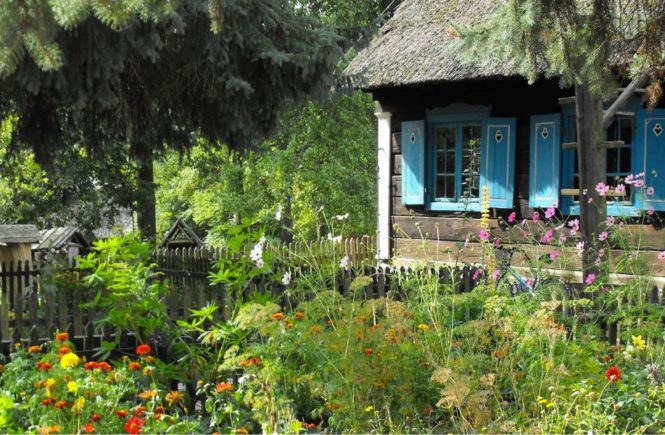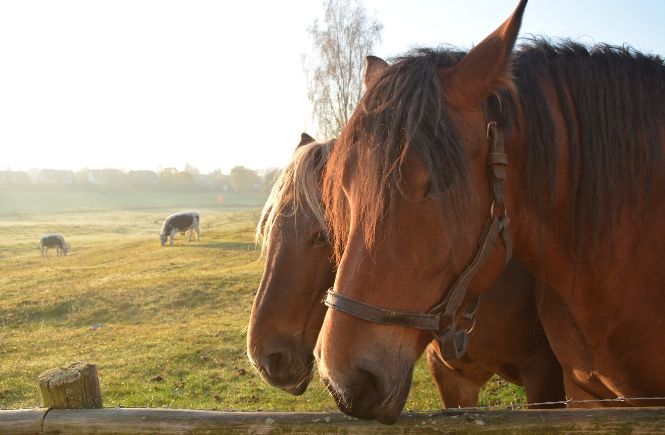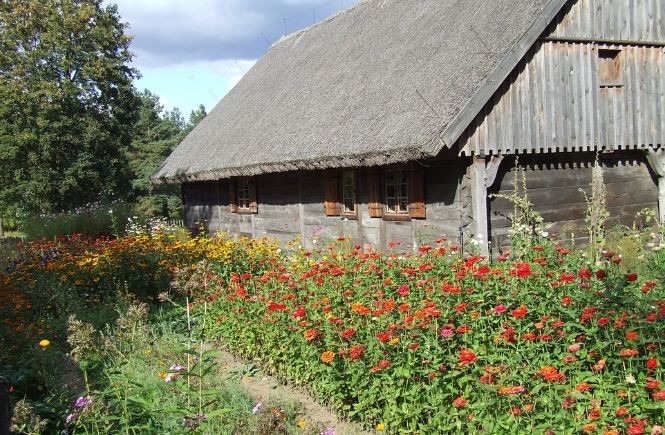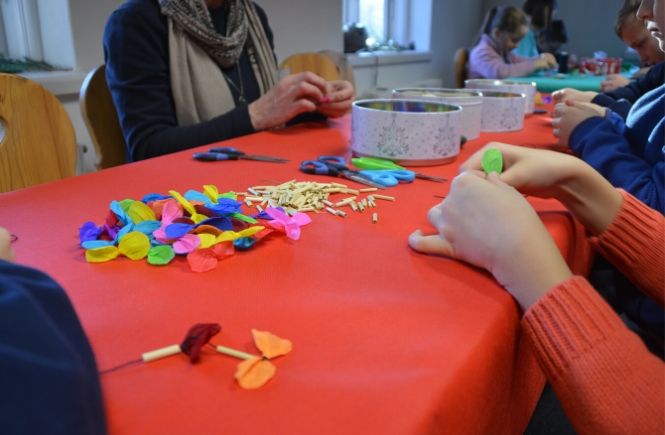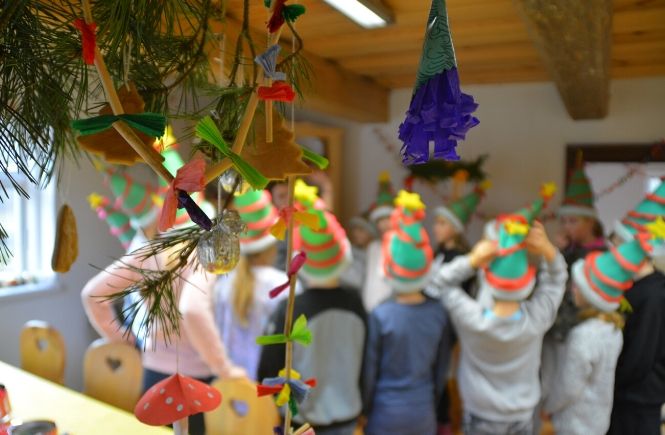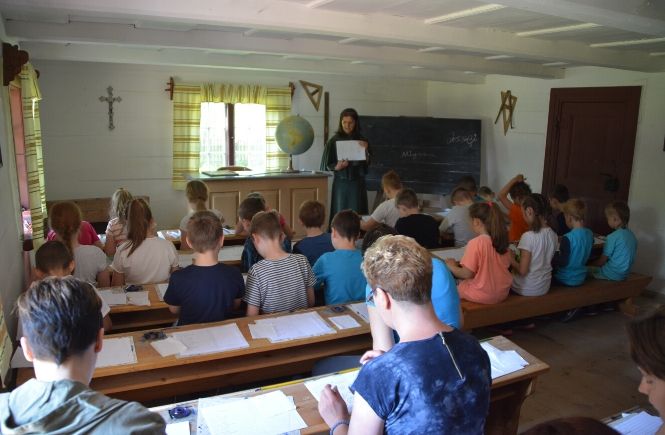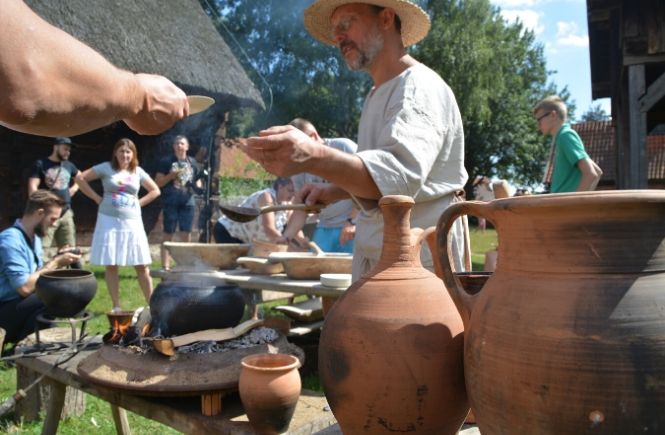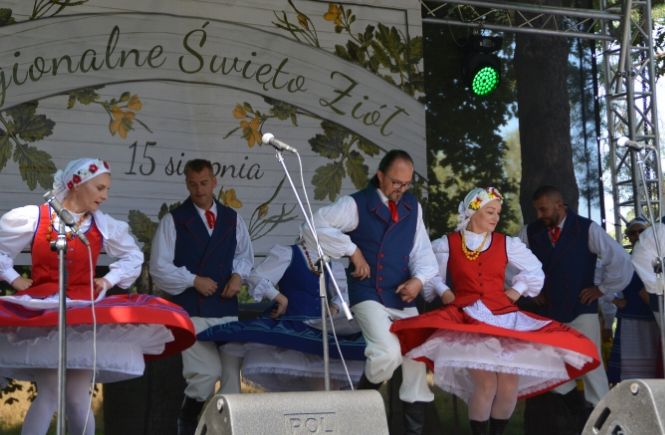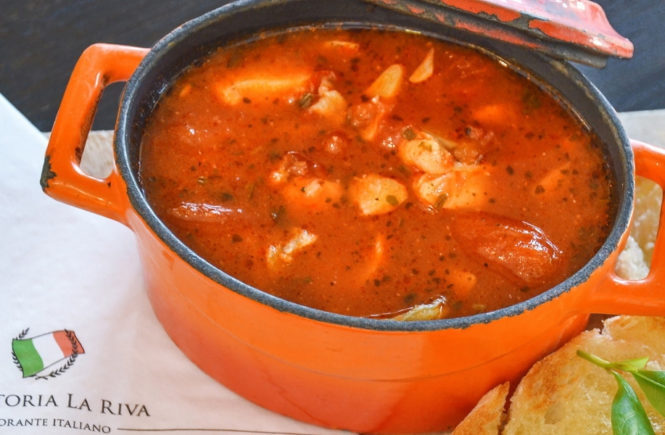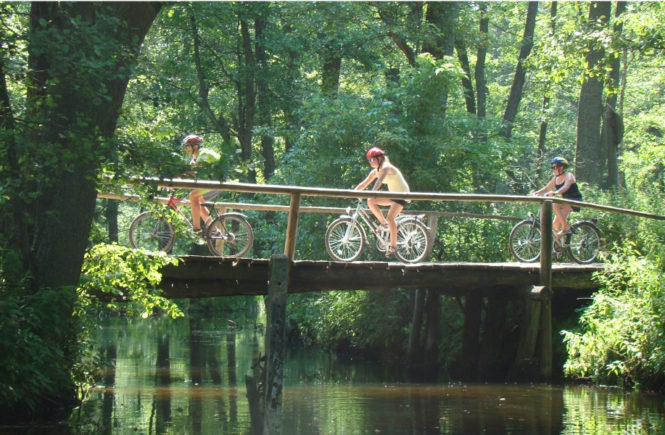While visiting the Folk Architeture Museum you set off on a journey through time. Traditional rural architecture with the oldest buildings dating back to the first part of 19th century as well as elements of material culture of the former inhabitants of Warmia, Masuria and Powiśle let you see into the world today known only by ethnographers and historians. In the Ethnographic Park, which is picturesquely located, you can discover cultures that used to make up the history of the Prussian lands. You will see the austere lifestyle of evangelical Masurians in their cottage arrangement and and various local differences in styles from Warmia and Powisle. Few remember that old Prussians lands were inhabited by ancient Lithuanian tribes. In the Ethnographic Park you can see buildings from the area of little Lithuania. The exhibition also presents how the land was used by the inhabitants who settled down here after 1945 due to mass migrations of people caused by World War II.
While walking through the museum you will see numerous household animals typical for the region like-Polish horses, sheep, goats, rabbits and different types of poultry. In the gardens dedicated to particular settlements you will find vegetables, flowers and herbs cultivated and used by Varmian and Oberland housewives.
The Folk Architecture Museum in Olsztynek is a facility where you feel as if you set off on a journey through time. Apart from buildings and material exhibits, typical animals and flora for rural areas can be seen. Polish horses, draught horses, ponies, sheep, goats, rabbits, cattle and various kinds of poultry are part of the exhibits on display.
The Museum covers an area of 94 ha. There is a wide range of artifacts to be seen which are housed in 79 facilities of buildings of various functions, style and construction from Warmia, Masuria, Powisle and Little Lithuania. These are residential and sacral buildings as well as farming and industrial constructions. The buildings are furnished and equipped with exhibits showing traditional working methods and rural rituals from the 19th and 20th centuries. There are more than 14 thousands exhibits in the museum collections of material, culture and folk art.
Education through fun and experience
There are numerous educational workshops for children thanks to which kids learn the reality of rural life in the past and secrets of craft making and folk art. In summer the kids have a chance to participate in holiday activities. Last year children took part in workshops such as: glass painting, pottery, cutouts, making floral arrangements and playing outside during ‘A child in the village -folk games’. Workshops before Christmas and Easter where children and teenagers make hand-made traditional Christmas and Easter decorations in addition to decorating cakes which unsurprisingly is the most popular.
Unusual exhibitions
In the museum there are unusual exhibitions which encourage visitors to go sightseeing. The exhibition entitled ‘Touch Folk Culture’ organised in the cottage from Chojnik village where you can test your strength using traditional old household equipment is very popular especially among children. The sightseeing route goes through the school from Pawłowo village where each visitor can sit at the school desk and learn monogram technique of writing, listen to the story of education and children’s lives in the village from the late 19th and early 20th centuries. Various animals are to be seen in the open-air museum and this is another big hit with the kids as they can participate in the lesson called ‘ A duck, a drake and a duckling’ and ‘From the sheep to the sweater’.
A display room located in the old Evangelical church and Mrongowiusz’s house – both situated in the centre of Olsztynek are part of the museum exhibits.
Outdoor events
Popular regular events organised by the museum are some of the biggest attractions throughout the year. Themed events reflect the character of the facility’s activity. You can enjoy the typical atmosphere of a country fair with handicrafts, craft and regional dishes. There are displays of dying arts. The staff of the Park organize workshops for children to participate in. Some of the more popular main events are during The long May weekend, the Regional Herbal Feast, the Varmia-Masuria Voivodship Village Festival and the Peasants’ Market. In summer you can take part in Regional Herbal Feast – the event is about the folk tradition of hallowing herbs, flowers and crops. Each year it is held on the 15th of August- the religious feast of Holy Mary of the Herbs. Its main aim is to promote herbs as an attractive and a marketable product from their natural environment and the presentation of crops, herbal producers and products from Varmia and Masuria including its usage in medicine, cosmetology and gastronomy. Obviously, there are accompanying workshops and shows connected with herbs, meetings with herbalists, folk groups shows, herb exhibitions, regional craft fair and presentations and lectures on herbs. If you happen to be nearby Olsztynek in August, visit the open-air museum. Below there is a calendar with events planned for 2020.
Practical information: wheelchair friendly, parking, toilet, recreation areas and eating facilities are available.
More information on: www.muzeumolsztynek.com.pl
Photos: Arch. MBL-PE in Olsztynek

